
Home


Hungary


Cardinal József Mindszenty


1956 Hungarian Revolution (My Story)
(My Eyewitness story of our Freedomfight
and Resistance against the Soviet Invasion)


50th Anniversary of our Freedomfight


My Travel Pages

Africa

America

Asia

Europe

Hungary

Oceania
My Russia pages

Russia
Russia History & Facts in brief
Moscow

Moscow

Catholic Cathedral

Christ the Saviour Cathedral

Kazan Cathedral

Kremlin

Kremlin Cathedrals

Moscow Airport

Moscow Buses

Moscow Metros

Novodevichy Convent

Red Square

Virgin on the Moat Cathedral
- - -
- -
Saint Petersburg

Saint Petersburg

Artillery Museum

Hermitage

Kronstadt

Peterhof

Oranienbaum

Peter and Paul Fortress

Saint Petersburg Airport

Saint Petersburg Buses

Saint Petersburg Metros

Saint Petersburg Trams

Vyborg
- - -
- -
Vladivostok

Vladivostok

Vladivostok Buses

Vladivostok Trains

Vladivostok Trams
- - -
- -
Volgograd

Volgograd

Tractor Factory - Museum

Volgograd Airport

Volgograd Buses

Volgograd Trams

Volgograd Trolleybuses
|

Russia facts & history in brief
 My Russia pages directory
My Russia pages directory
Map of Russia
Moscow Kremlin
Excerpted from Wikipedia, the free encyclopedia
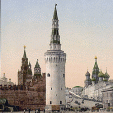 Moscow Kremlin in
Moscow Kremlin in
the 19th century
Kremlin is the Russian word for "fortress",
"citadel" or "castle" and refers to any major
fortified central complex found
in historic Russian cities.
This word is often used to refer to the best known
one, the Moscow Kremlin, or the
government that is based there.
Outside Russia, the name "Kremlin" is sometimes
mistakenly thought of as being Saint Basil's Cathedral
because of its distinctive shape, although this
is not a part of the Moscow Kremlin.
 Kazan Kremlin harmoniously combines
Kazan Kremlin harmoniously combines
elements of Eastern Orthodox and
Muslim cultures
The Kremlin is the executive branch of the government
of Russia (or formerly Soviet Union).
They are especially concerned with foreign affairs.
_____ o _____ O _____ o _____
The Moscow Kremlin is a historic fortified complex
at the very heart of Moscow, overlooking the
Moskva River (to the south), Saint Basil's Cathedral
(often mistaken as the Kremlin) and Red Square
(to the east) and the Alexander Garden (to the west).
It is the best known of kremlins (Russian citadels)
and includes four palaces, four cathedrals, and the
enclosing Kremlin Wall with Kremlin towers.
The complex serves as the official
residence of the President of Russia.
Origin
The site has been continuously inhabited since
the 2nd millennium BC, and originates from a
Vyatich fortified structure on Borovitsky Hill
where the Neglinnaya River flowed
into the Moskva River.
The Slavs occupied the south-western portion of
the hill as early as the 11th century, as
testifies a metropolitan seal from the 1090s,
which was unearthed by Soviet
archaeologists on the spot.
Until the 14th century, the site was known
as the grad of Moscow.
The word "kremlin" was first recorded in 1331
and its etymology is disputed.
The "grad" was greatly extended by Prince Yuri
Dolgoruky in 1156, destroyed by the Mongols
in 1237 and rebuilt in oak in 1339.
Seat of Grand Dukes
The first recorded stone structures in the
Kremlin were built at the behest of Ivan
Kalita in the late 1320s and early 1330s,
after Peter, Metropolitan of Rus had moved
his seat from Kiev to Moscow.
The new ecclesiastical capital needed
permanent churches.
These included the Dormition Cathedral (1327,
with St. Peter's Chapel, 1329), the
church-belltower of St. John Climacus (1329),
the monastery church of the Saviour's
Transfiguration (1330), and the Archangel
Cathedral (1333) - all built of limestone
and decorated with elaborate carving,
each crowned by a single dome.
Of these churches, the reconstructed Saviour
Cathedral alone survived into the 20th century,
only to be pulled down at
the urging of Stalin in 1933.
When Dmitri Donskoi prepared to challenge
the Tatar authority, he replaced the oaken
walls with a strong citadel of white stone
(1366-1368), which withstood a siege by
Khan Tokhtamysh.
Dmitri's son Vasily I made peace with the
Tatars and resumed construction of
churches and cloisters.
The newly-built Annunciation Cathedral
was painted by Theophanes the Greek, Andrey
Rublev, and Prokhor in 1405.
The Chudov Monastery was founded by Dmitri's
tutor, Metropolitan Alexis; while his
widow, Eudoxia, established
the Ascension Convent in 1397.

For a more information about
Moscow Kremlin see Wikipedia, the free encyclopedia

This page was retrieved and condensed from
(http://en.wikipedia.org/wiki/Moscow_Kremlin)
see Wikipedia, the free encyclopedia, December 2007.
All text is available under the terms of the
GNU Free Documentation License
(see
Copyrights for details).
About Wikipedia
Disclaimers

This information was correct in December 2007. E. & O.E.

2007
You can click on these photos for an enlargement
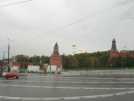 |
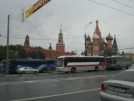 |
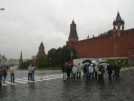 |
| Moscow - Kremlin |
Moscow - Kremlin |
Moscow - Kremlin |
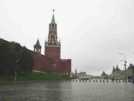 |
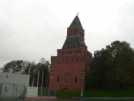 |
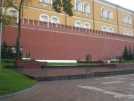 |
| Moscow - Kremlin |
Moscow - Kremlin |
Moscow - Kremlin |
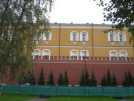 |
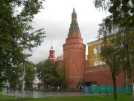 |
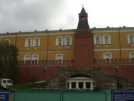 |
| Moscow - Kremlin |
Moscow - Kremlin |
Moscow - Kremlin |
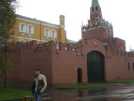 |
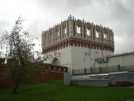 |
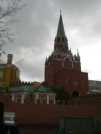 |
| Moscow - Kremlin |
Moscow - Kremlin |
Moscow - Kremlin |
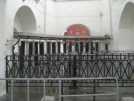 |
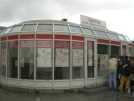 |
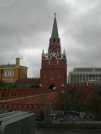 |
| Moscow - Kremlin |
Moscow - Kremlin |
Moscow - Kremlin |
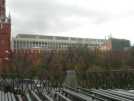 |
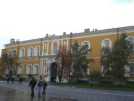 |
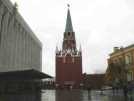 |
| Moscow - Kremlin |
Moscow - Kremlin |
Moscow - Kremlin |
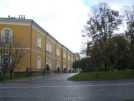 |
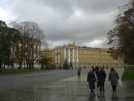 |
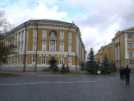 |
| Moscow - Kremlin |
Moscow - Kremlin |
Moscow - Kremlin |
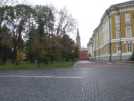 |
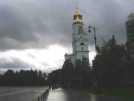 |
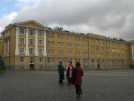 |
| Moscow - Kremlin |
Moscow - Kremlin |
Moscow - Kremlin |
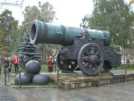 |
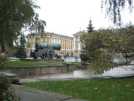 |
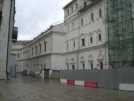 |
| Moscow - Kremlin |
Moscow - Kremlin |
Moscow - Kremlin |
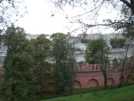 |
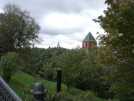 |
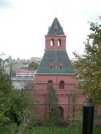 |
| Moscow - Kremlin |
Moscow - Kremlin |
Moscow - Kremlin |
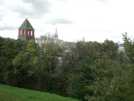 |
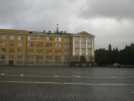 |
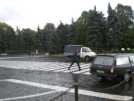 |
| Moscow - Kremlin |
Moscow - Kremlin |
Moscow - Kremlin |
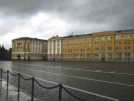 |
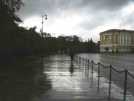 |
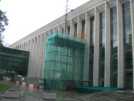 |
| Moscow - Kremlin |
Moscow - Kremlin |
Moscow - Kremlin |
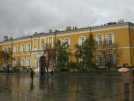 |
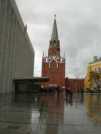 |
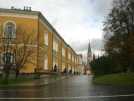 |
| Moscow - Kremlin |
Moscow - Kremlin |
Moscow - Kremlin |
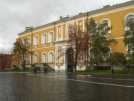 |
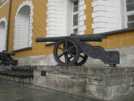 |
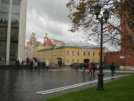 |
| Moscow - Kremlin |
Moscow - Kremlin |
Moscow - Kremlin |
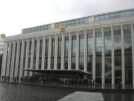 |
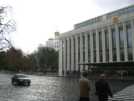 |
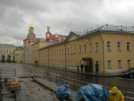 |
| Moscow - Kremlin |
Moscow - Kremlin |
Moscow - Kremlin |
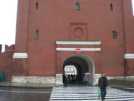 |
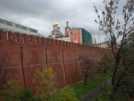 |
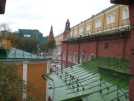 |
| Moscow - Kremlin |
Moscow - Kremlin |
Moscow - Kremlin |
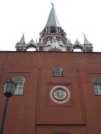 |
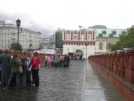 |
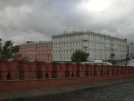 |
| Moscow - Kremlin |
Moscow - Kremlin |
Moscow - Kremlin |
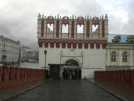 |
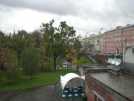 |
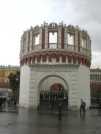 |
| Moscow - Kremlin |
Moscow - Kremlin |
Moscow - Kremlin |
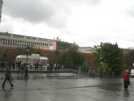 |
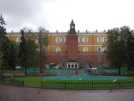 |
|
| Moscow - Kremlin |
Moscow - Kremlin |
|